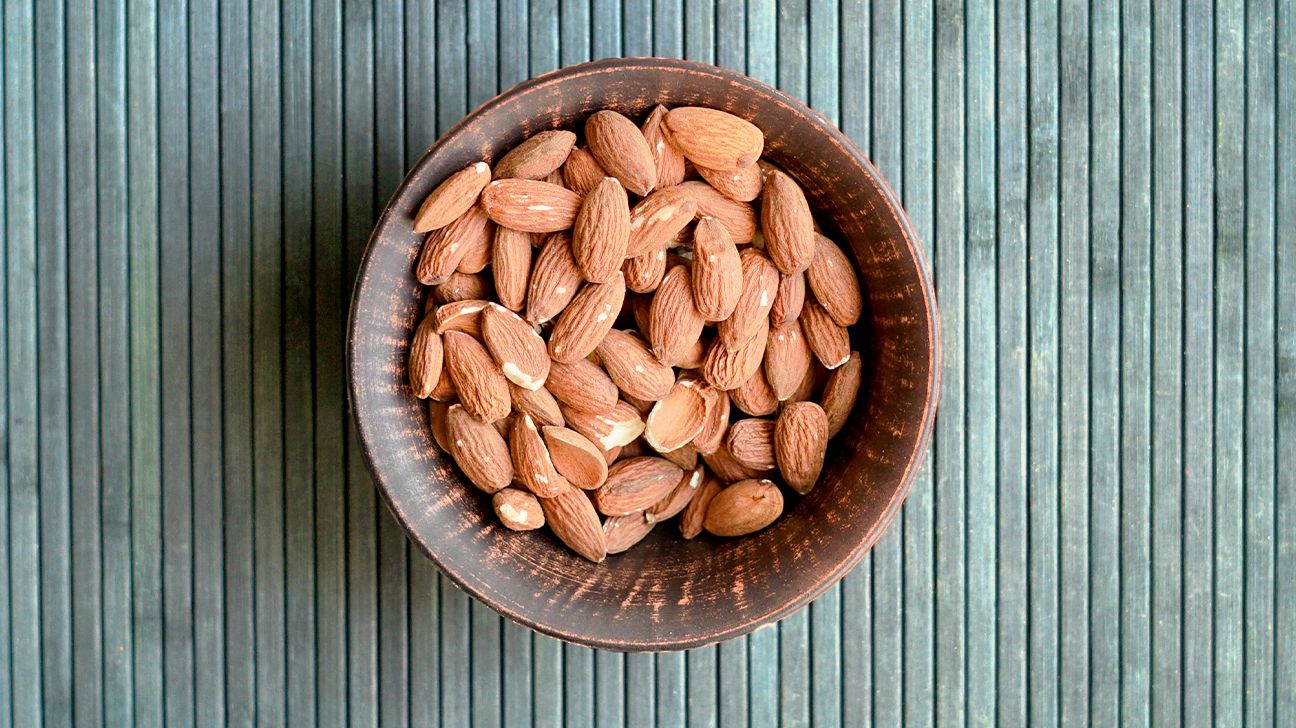
- People often avoid eating nuts due to their high calorie and fat content.
- However, a new study has found that people who ate almonds lost just as much weight as those who didn’t.
- They also experienced improvements in various indicators of cardiometabolic health.
- Nutrition experts say that nuts such as almonds are satiating and contain a variety of needed nutrients.
- When eaten as a part of a balanced diet, they can help with weight management.
People looking to shed a few pounds may feel it’s wise to avoid eating nuts like almonds. After all, according to the U.S. Department of Agriculture, 100 grams of this food provide a hefty
However,
The study, which was reported to be the largest of its kind, found that people who ate almonds as a part of a calorie-restricted diet lost about 9.3% of their body weight.
They also experienced improvements in various measures of cardiometabolic health, such as blood pressure, blood sugar, and lipids.
In order to examine how the consumption of almonds affected weight loss, 140 men and women between the ages of 24 and 65 were recruited. All participants had a BMI (body mass index) within the overweight or obese range.
People were then randomly assigned to either an almond-enriched or a nut-free diet. The almond-enriched diet provided 15% of their daily calories as unsalted, whole, natural California almonds with skins.
People in the other group received a corresponding number of calories in the form of carbohydrate-rich snack foods like rice crackers or fruit cereal bars.
For the first 12 weeks, all participants ate a reduced-calorie diet. Then, for the next 24 weeks, they ate a weight-maintenance diet.
Participants visited the clinic at the start of the study as well as at the 12- and 36-week points for assessment. At these assessments, the researchers checked whether people had lost or maintained weight, depending on what the current goal was.
They also looked at their body composition, waist circumference, and total energy expenditure.
Additionally, they took measures of various cardiometabolic indicators, such as blood pressure, blood lipids, blood sugar, insulin, insulin resistance, insulin sensitivity, and pancreatic beta cell function. A metabolic syndrome score was also determined.
After analyzing the data, the scientists learned that both groups had similar weight loss — about 7 kilograms (15.4 pounds) — as well as improvements in cardiometabolic health.
However, the almond-enriched diet did provide greater improvements in certain lipoprotein subfractions, including small LDL-P. Small LDL-P is associated with the greatest risk for the formation of artery-clogging plaques, per the authors, so an improvement in its levels could potentially lead to a reduction in cardiovascular risk.
Cesar Sauza, a Registered Dietitian Nutritionist at Ehproject.org, said that almonds are one high-fat food that you should include in your diet.
“Fats continue to have this negative image in regards to cholesterol and weight management but fats are essential nutrients that need to be part of any balanced diet,” he said. “The monounsaturated and polyunsaturated fats found in nuts are heart-protective, potentially reducing the plaque formation that can lead to clogged arteries and raising our good HDL cholesterol.”
Sauza went on to say that nuts contain protein and a variety of vitamins and minerals making them “a powerhouse for our heart and body.”
He further noted that they might also help with weight loss because they are satiating and can help us to be more in touch with our hunger and satiety cues. They can also help us with regulating our portion sizes.
Caitlin Spears, certified health and nutrition coach, fitness coach, and founder of Complete by Caitlin, said that, while nuts like almonds are beneficial for our weight, it’s still important to incorporate them as a part of a well-rounded, balanced diet.
One thing to keep in mind is portion sizes.
“While nuts are nutritious,” said Spears, “they are also calorie-dense. It’s important to be mindful of portion sizes to avoid excessive calorie intake.” She said the recommended serving size equals to about 1-2 ounces of nuts, or what you can hold in your hand.
When purchasing nuts, Spears advises choosing those that are unsalted or lightly salted in order to avoid excessive sodium intake. “Additionally, be cautious of flavored nuts that may contain added sugars or unhealthy additives,” she said.
You’ll also want to eat a variety of different nuts in addition to almonds, according to Spears. Different nuts offer different flavors and provide a different range of nutrients.
Spears suggests that it’s also a good idea to substitute nuts for unhealthy snacks. “Instead of reaching for processed snacks,” she said, “opt for a handful of nuts as a satisfying and nutritious snack option.”
Finally, she noted that there are a variety of ways you can enjoy nuts. “Sprinkle chopped nuts on salads, yogurt, or oatmeal to add crunch and flavor,” she said. “You can also use ground nuts as a coating for baked chicken or fish for a healthy twist.”
People often avoid eating nuts due to their high calorie and fat content. However, a new study has found that people who ate almonds lost just as much weight as those who didn’t.
They also experienced improvements in various indicators of cardiometabolic health.
Nutrition experts say that nuts such as almonds are satiating and contain a variety of needed nutrients. When eaten as a part of a balanced diet, they can help with weight management.

